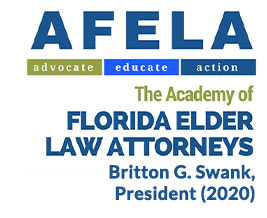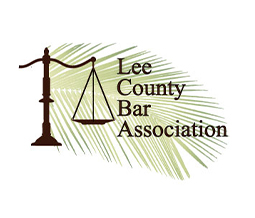Veterans Benefits
What do Veterans Benefits mean for you or your surviving spouse?
Pension, Housebound, and Aid and Attendance benefits can help pay the long-term care costs of a veteran or their surviving spouse who is struggling financially. The analysis starts with determining whether a veteran or spouse is eligible for pension benefits through the Veterans Administration (VA). If so, can the veteran or spouse qualify for an increased payment by being eligible for either a Housebound or Aid and Attendance benefit?
Pension
The VA provides a pension to eligible wartime veterans in need of financial help. The benefit is tax-free and to receive it, a wartime service requirement must be met and the Veteran or spouse must be:
age 65 or older; or
• totally and permanently disabled; or
• a patient in a nursing home receiving skilled nursing care; or
• receiving Social Security Disability Insurance; or
• receiving Supplemental Security Income.
age 65 or older; or
• totally and permanently disabled; or
• a patient in a nursing home receiving skilled nursing care; or
• receiving Social Security Disability Insurance; or
• receiving Supplemental Security Income.
Housebound
A pension increase is available if an applicant is substantially confined to their immediate premises because of permanent disability.
Aid and Attendance
A pension increase for Aid and Attendance is available if an applicant meets one of the following conditions:
• requires the aid of another person to perform personal functions required in everyday living, such as bathing, feeding, dressing, attending to the wants of nature, adjusting prosthetic devices, or protecting themselves from the hazards of their daily environment; or
• is bedridden (disability requires them to remain in bed apart from any prescribed course of convalescence or treatment); or
• is a patient in a nursing home due to mental or physical incapacity; or
• has eyesight limited to a corrected 5/200 visual acuity or less in both eyes; or
• has concentric contraction of the visual field to 5 degrees or less.
• requires the aid of another person to perform personal functions required in everyday living, such as bathing, feeding, dressing, attending to the wants of nature, adjusting prosthetic devices, or protecting themselves from the hazards of their daily environment; or
• is bedridden (disability requires them to remain in bed apart from any prescribed course of convalescence or treatment); or
• is a patient in a nursing home due to mental or physical incapacity; or
• has eyesight limited to a corrected 5/200 visual acuity or less in both eyes; or
• has concentric contraction of the visual field to 5 degrees or less.
Wartime Service Requirement
• 90 days of active duty service, with at least one day during a wartime period.
• Exception – If you entered active duty after September 7, 1980, generally the minimum service requirement is 24 months or the full period for which you were called or ordered to active duty. Again, at least one day of service must be during a wartime period.
• Discharge must be other than dishonorable.
• Exception – If you entered active duty after September 7, 1980, generally the minimum service requirement is 24 months or the full period for which you were called or ordered to active duty. Again, at least one day of service must be during a wartime period.
• Discharge must be other than dishonorable.
Eligible Wartime Periods
Under current law, VA recognizes the following wartime periods to determine eligibility for VA Pension benefits:
• Mexican Border Period (May 9, 1916 – April 5, 1917 for Veterans who served in Mexico, on its borders, or adjacent waters)
• World War I (April 6, 1917 – November 11, 1918)
• World War II (December 7, 1941 – December 31, 1946)
• Korean conflict (June 27, 1950 – January 31, 1955)
• Vietnam era (February 28, 1961 – May 7, 1975 for Veterans who served in the Republic of Vietnam during that period; otherwise August 5, 1964 – May 7, 1975)
• Gulf War (August 2, 1990 – through a future date to be set by law or Presidential Proclamation)
• Mexican Border Period (May 9, 1916 – April 5, 1917 for Veterans who served in Mexico, on its borders, or adjacent waters)
• World War I (April 6, 1917 – November 11, 1918)
• World War II (December 7, 1941 – December 31, 1946)
• Korean conflict (June 27, 1950 – January 31, 1955)
• Vietnam era (February 28, 1961 – May 7, 1975 for Veterans who served in the Republic of Vietnam during that period; otherwise August 5, 1964 – May 7, 1975)
• Gulf War (August 2, 1990 – through a future date to be set by law or Presidential Proclamation)
Wartime Veteran Benefits
View the current Wartime Veteran Beneifits.
Surviving Spouse Benefits
View the current Surviving Spouse Benefits.
Upcoming Appointment?
We can help you prepare before you appointment with our easy-to-use downloadable forms. Click below to get started now.
Do you need help with an Elder Law topic?
E-mail us at INFO@SWANKELDERLAW.COM
Swank Elder Law
The firm of Britton G. Swank, P.A. is skilled at providing legal assistance to older adults and people of all ages preparing for the future.

Our Offices
Main Office:
10175 Six Mile Cypress Parkway, Ste 4
Fort Myers, Florida 33966
Satellite Office:
By Appointment Only
702 Leeland Heights Blvd W
Lehigh Acres, Florida 33936
Call Us
239-208-3040








